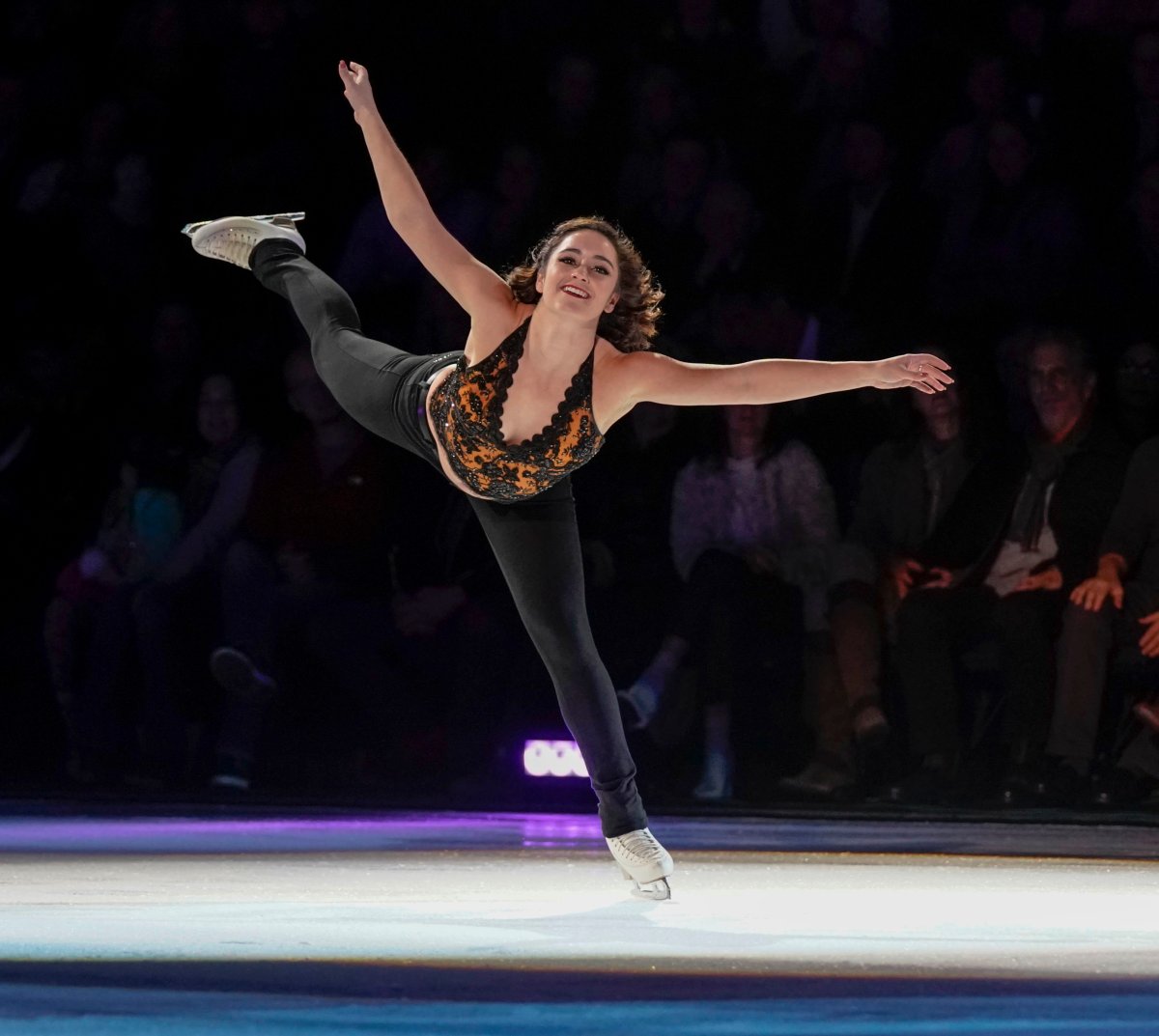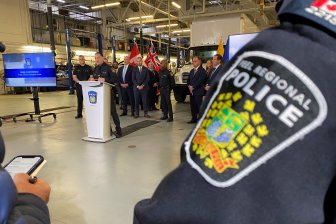In March 2018, Kaetlyn Osmond became a world champion. The Newfoundland-born, Edmononton-based figure skater was training six hours a day and had a team of 15 managing nearly every aspect of her life.

“It was incredible,” Osmond told Global News on Monday. “Winning worlds was something I never expected to be able to do.
“But when I came home and sat down, after I bit, I was like: ‘I think I did it… I don’t know if I want to do that again.’
“The point of exhaustion kind of took over and to convince myself to go back into that bubble of training, I didn’t know if I could put myself back there.”
Osmond decided to take the entire 2018-2019 season off to evaluate her future. She performed on the cross-country “Thank You Canada Tour” with some of her teammates but did not skate on the ISU circuit.
She was coming off an incredible run. Her world championship last March in Milan came a few weeks after she won singles bronze and team gold at the Olympics.
“It was definitely a big mental struggle. After my last competition, I got wrapped up in shows and I kept myself really busy for a while — to the point that I sat down afterwards and I cut my hair off and I ditched everything that I had.
“I had everyone on hand that I could think of — my coaches, my sports psychologist, my medical doctors, everything — and I left everything. I packed up my stuff and I moved to Toronto.”
Osmond said that first year without competitive skating was really difficult.
“I went from training five, six hours a day non-stop, with coaches telling me what to do, where to be and how to get there, and I shut all that down because I wanted to see what it was like to not have that. I realized I actually didn’t know how. That was a big struggle for me.”
She said she struggled with her weight, which negatively impacted her mental health.
“I went from being in Olympic shape to not — very quickly. I was still putting myself out in shows, performing every night, and I was getting immediate feedback on social media on that side of it. It was a big struggle that way.
“It took me a while to figure out how to cope with that and if I wanted to reach out to people because I wanted to try to do it all by myself. It took me a while but I finally have reached out to those people again and it’s helped a lot.”
Osmond officially announced her retirement in May.
The 24 year old was in Edmonton on Monday to help promote The Next Step, a resource listing for Alberta athletes transitioning or retiring from competitive sport.
“We’ve modeled it somewhat after what the Canadian Olympic Committee offers,” Dr. Marni Wesner explained. “There’s sort of seven key areas that athletes struggle with: medical, physical therapy or their ongoing rehab, psychological struggles, dietetics, career counselling, financial planning and peer support.”
The Next Step hopes to be a one-stop support shop for athletes of all levels trying to transition from one level to another.
“They’ve been focused and immersed in sport and training — and everything in their life is revolving around a predictable schedule and a predictable competitive aspect and a certain mindset of sport — and then all of a sudden, if that is lost and there’s nothing to replace that, it’s a very challenging and difficult time.
“It’s kind of akin to someone who retires from their career after 65 and hasn’t planned for retirement,” Wesner said.
A main challenge athletes encounter is trying to heal an ongoing injury they sustained in their sport. It may have been the injury that pushed them into retirement, Wesner said.
“If there’s residual problems or physical injuries, they still need rehabilitation. In some situations, when you retire from your team, you lose the support of the team physician and the physiotherapist. So how do you continue to rehabilitate so this is not going to be a problem that’s going to affect you for the rest of your life?”
Osmond says this kind of resource is something that’s desperately needed on a number of levels.
“A lot of us were injured our whole lives because of sport and when we retire, we leave everything behind and we never actually get healed.
“We’re going from a very structured social bubble, where all we do is go from school to skating and then home and then back to skating… It’s always a bit of an issue when that just stops. You gain a little bit of freedom but don’t know how to use that freedom.”

For her part, Osmond is running figure skating camps back home in Newfoundland. She’s teaching the basics, along with education on finding the joy in skating and being open about the mental side of the sport.
Two young skaters will be selected to come to Edmonton for the chance to train with her coaches at the Ice Palace.
“It’s been really exciting and hopefully I’ll be able to bring that across Canada more than just Newfoundland but right now I like the idea of being home.”
READ MORE: Olympic medallist Kaetlyn Osmond to receive Order of Newfoundland and Labrador
She’ll also be heading back to school in September to study journalism.
“I’m actually doing really well now,” Osmond said. “In the last couple of months, I feel like I’ve finally figured out where I want to be and who I want to become.”
And she’s finding a way to use those harder times to help others.
“I should have reached out to people more and I wish I had.
“I reached out to my sports psychologist a few times in the first coming months after I retired but I stopped after I moved. I thought I could do everything on my own and I wanted to try and prove that I could.
“I’m not the only one struggling,” she said. “I’m hearing back from other people… that they are going through very similar ideas — and that’s coming from people from the age of 13 and up. It’s amazing to be able to hear from them and be able to connect with them and let them know that they can reach out and they don’t have to be alone in all of that.”












Comments